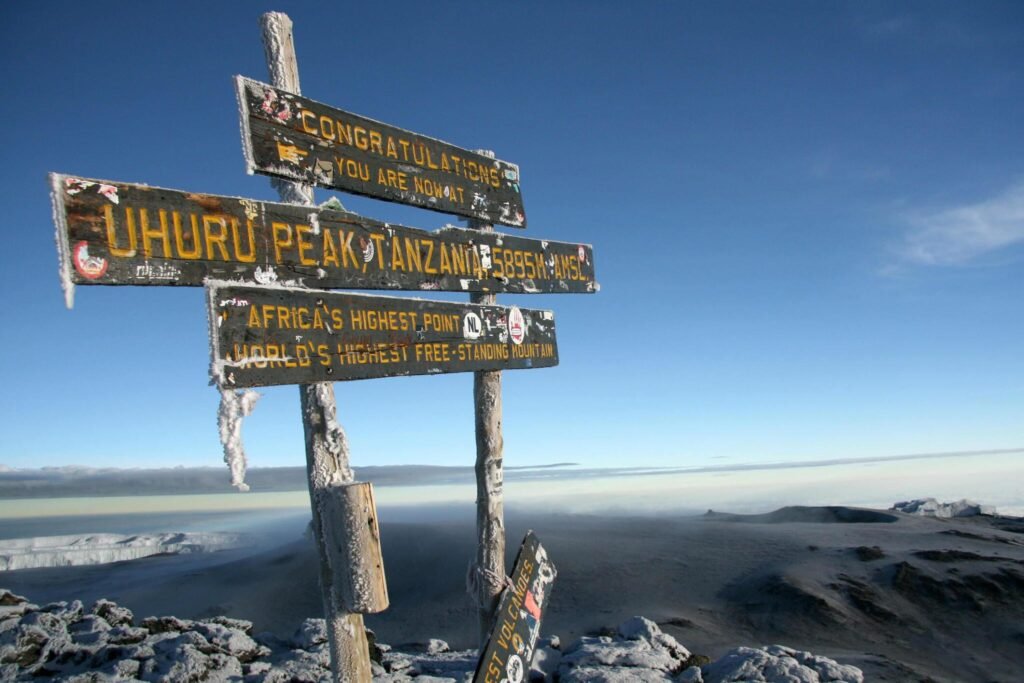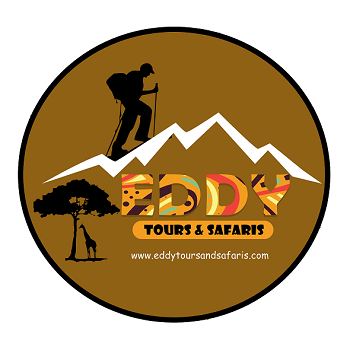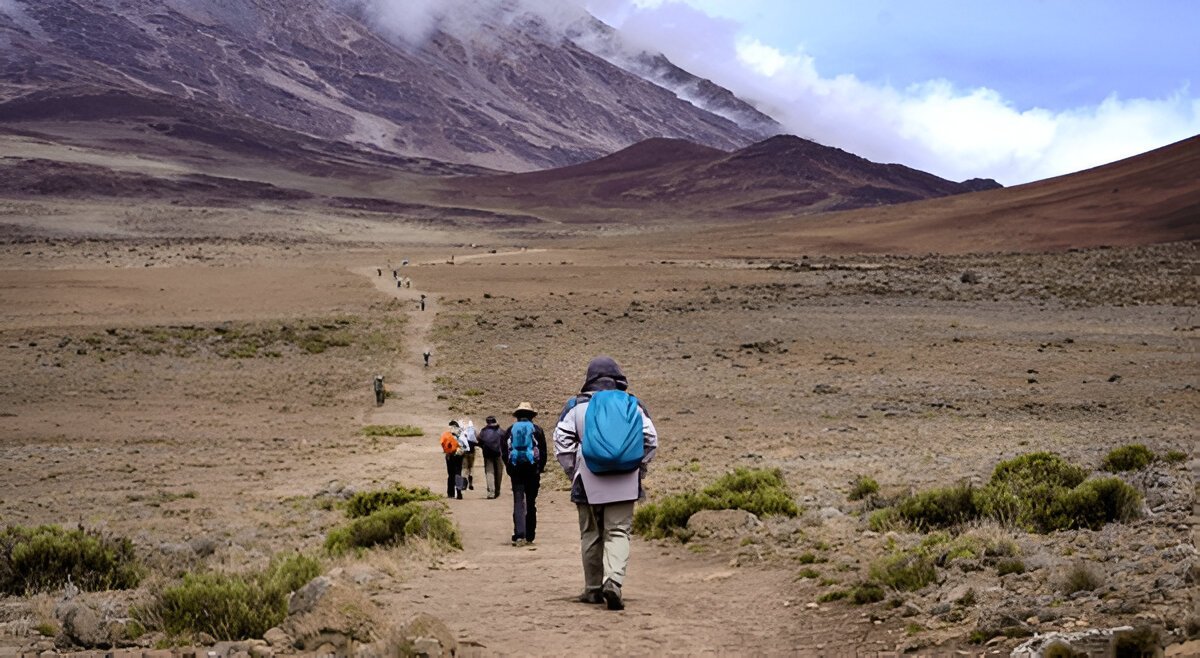Planning to climb Mount Kilimanjaro is an exciting adventure, but one thing you’ll quickly notice is that prices vary significantly between tour operators. From budget operators to high-end luxury options, the cost to summit Africa’s highest peak can range widely. But why do prices differ between Kilimanjaro tour operators? In this guide, we’ll break down the key factors that influence these differences, so you can choose a trek that best suits your needs, safety, and budget.

1. Kilimanjaro National Park Fees
One of the major costs for all tour operators is the Kilimanjaro National Park fees, which are fixed by the Tanzanian government. These fees include:
- Conservation Fee: $70 per person per day.
- Camping or Hut Fee: $50–$60 per person per night.
- Rescue Fee: $20 per person per climb.
These fees alone can make up $800–$1,000 of the total cost for a typical 7-day trek. Most reputable operators will include these fees in the overall package price, while cheaper operators may try to cut corners or omit certain services, leading to lower costs.
Learn more about Kilimanjaro park fees with Kilimanjaro Climb Specialist
2. Guide and Porter Wages
A critical factor in the cost difference between Kilimanjaro operators is the wages paid to guides and porters. Responsible companies offer fair wages, provide adequate food, and supply proper gear for their staff. Ethical treatment is crucial, not just for the safety and morale of the guides and porters, but for your safety as well.
- Fair Wages: Budget operators often pay lower wages, which can affect the quality of the service and safety on the mountain.
- Porter Load Limits: Reputable companies follow Kilimanjaro Porters Assistance Project (KPAP) guidelines, which cap porters’ loads at 20 kg. Some cheaper operators overload porters to cut costs.
Hiring an operator that treats their staff fairly may increase your tour cost, but it ensures that you’ll be climbing with a well-supported team.
Learn more about ethical climbing practices on Kilimanjaro
3. Quality of Food and Accommodation
The quality of food and accommodation offered on the mountain can vary significantly depending on the tour operator. Higher-priced operators typically provide better meals, snacks, and drinks to ensure that climbers stay well-nourished and energized throughout the trek.
- Meal Quality: Some operators provide basic meals (e.g., instant noodles or rice), while higher-end operators offer more nutritious, fresh meals with fruits, vegetables, and proteins.
- Tents and Sleeping Gear: Luxury operators provide high-quality tents, sleeping bags, and mats to protect you from the harsh conditions at high altitudes. Cheaper operators may offer basic or older gear that may not provide sufficient protection.
Having proper meals and good-quality camping equipment is essential for your comfort and well-being on the mountain.
4. Safety Standards and Equipment
Safety is non-negotiable when it comes to climbing Kilimanjaro. The standards and equipment provided by tour operators can drastically affect the cost of your climb. Reputable operators invest heavily in safety equipment and follow strict safety protocols.
- Oxygen Tanks: High-end operators carry portable oxygen tanks and pulse oximeters to monitor climbers’ oxygen levels, while some budget operators do not.
- Emergency Evacuations: Top-tier operators have plans in place for emergency evacuations, including access to emergency medical services and helicopter rescue if needed.
Paying more for a tour operator that prioritizes safety ensures that you’ll have the best chance of reaching the summit safely.
Learn more about climbing Kilimanjaro safely with Eddy Tours Safaris
5. Group Size and Personal Attention
Another factor that influences pricing is the group size. Budget operators tend to take larger groups (up to 15-20 climbers), which can make the experience feel less personal. In contrast, higher-end operators limit their groups to smaller sizes (around 4-8 people), offering more personalized attention.
- Small Groups: Provide a better guide-to-climber ratio, ensuring you receive more individualized support and guidance.
- Large Groups: While cheaper, may compromise the overall experience, as guides have less time to focus on each individual’s needs.
Smaller groups often lead to better communication and a more comfortable climb overall.
Learn more about small group Kilimanjaro treks
6. Number of Acclimatization Days
Acclimatization is key to successfully summiting Kilimanjaro. Operators that prioritize climbers’ health and well-being will recommend 7-9 day itineraries to allow more time for acclimatization, reducing the risk of altitude sickness.
- Shorter Routes: Some cheaper operators may offer shorter 5- or 6-day treks, but these have a much lower success rate because they don’t give climbers enough time to acclimatize.
- Longer Routes: While longer routes cost more, they increase your chances of safely reaching the summit and offer a more enjoyable experience.
Learn about Kilimanjaro acclimatization strategies
7. Route Selection
The choice of Kilimanjaro routes also affects the overall price. Some routes are more popular and therefore more affordable, while others, which offer more scenic or quieter paths, come with higher costs due to longer durations and fewer trekkers.
- Marangu Route: Known as the “Coca-Cola Route,” it’s one of the most affordable but also the busiest and least scenic.
- Lemosho and Northern Circuit Routes: These longer and more scenic routes cost more due to their extended duration and the remote areas they traverse.
Choosing a route that aligns with your goals and budget is key to enjoying your Kilimanjaro experience.
Discover the best Kilimanjaro routes with Kilimanjaro Climb Specialist
8. Hidden Costs and Budget Operators
While budget operators might appear more affordable, they often come with hidden costs that aren’t immediately obvious. Some low-cost companies charge additional fees for gear rental, transportation, or meals, which can add up and make the final cost similar to that of a more reputable operator.
- Gear Rental: Some companies charge extra for essential gear like sleeping bags or trekking poles, whereas others include these items in the total price.
- Transportation Fees: Budget operators may charge extra for transfers between Arusha or Moshi and the Kilimanjaro trailheads.
Always ask for a clear breakdown of costs when comparing tour operators to avoid unexpected charges.
Find more tips on selecting a Kilimanjaro tour operator
9. Environmental Practices and Sustainability
Sustainable tourism is becoming more important as travelers seek eco-friendly experiences. Reputable Kilimanjaro tour operators often follow environmentally responsible practices, such as leave-no-trace principles and using eco-friendly camping gear.
- Environmental Impact: Ethical companies ensure they minimize their environmental footprint, packing out all waste and using biodegradable products.
- Porter Welfare: In addition to fair wages, sustainable operators provide proper gear for porters and invest in the local communities.
Opting for a sustainable operator may cost more, but it ensures that your climb has a positive impact on both the environment and local communities.
Learn more about sustainable tourism on Kilimanjaro
FAQs About Kilimanjaro Tour Pricing
1. Why do some operators offer much lower prices than others?
Lower prices often indicate cuts in key areas such as guide wages, food quality, safety equipment, or park fees. Choosing a budget operator may mean sacrificing safety, comfort, or even your chances of successfully reaching the summit.
2. Is it worth paying more for a Kilimanjaro trek?
Yes, paying more often ensures higher safety standards, better accommodation, fair wages for staff, and a greater chance of successfully reaching the summit. It also means contributing to ethical and sustainable tourism.
3. What’s included in most Kilimanjaro tour packages?
Most packages include park fees, guides, porters, meals, and transportation to and from the mountain. Some operators also include gear rental and pre-climb accommodations, but it’s essential to ask for a detailed breakdown.
Get more FAQs on Kilimanjaro climbs
Choosing the Right Kilimanjaro Tour Operator
When selecting a Kilimanjaro tour operator, it’s essential to consider more than just the price. While lower costs can be tempting, they often come with compromises that may affect the quality, safety, and overall enjoyment of your climb. Take time to review the experience, reputation, and commitment to ethical practices of the operator to ensure you have a safe and memorable trek.
Start planning your Kilimanjaro adventure with Kilimanjaro Climb Specialist
Book your Kilimanjaro tour with Eddy Tours Safaris

